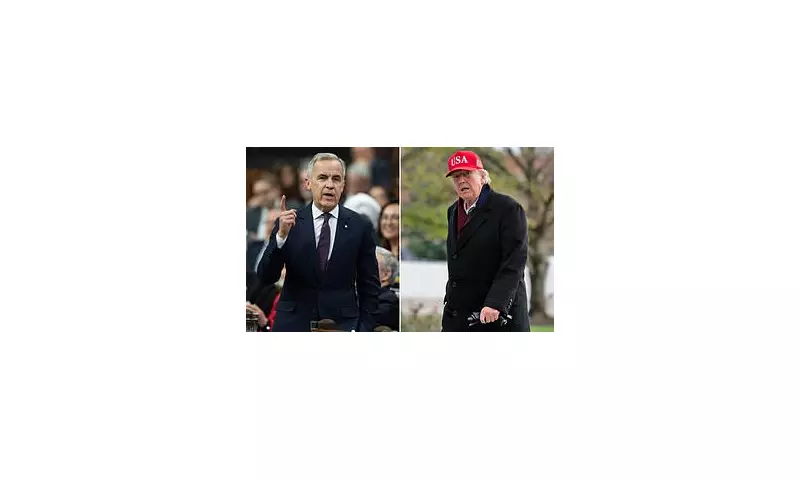
Canadian Prime Minister Mark Carney has dramatically reignited his feud with US President Donald Trump, declaring the world can progress without American leadership just weeks after mending relations between the two nations.
G20 Summit Becomes Stage for Diplomatic Clash
The fresh confrontation emerged during the G20 summit in Johannesburg, South Africa, which concluded on Sunday. While leaders from across the globe gathered for the international meeting, the Trump administration notably boycotted the event.
White House spokeswoman Anna Kelly confirmed the US boycott occurred after South African officials defied President Trump by releasing a summit declaration despite what she described as consistent and robust US objections.
Prime Minister Carney, who assumed office in March, seized on Trump's absence during a press conference on Sunday. This year's G20 summit brought together nations representing three-quarters of the world's population, two-thirds of global GDP and three-quarters of the world's trade, and that's without the United States formally attending, Carney stated pointedly.
He added a significant observation about global economic trends: It's a reminder that the centre of gravity in the global economy is shifting.
From Apology to Renewed Tensions
The latest diplomatic jab comes merely weeks after Carney apologised to President Trump over a controversial anti-tariff television advertisement. The commercial, which aired during the World Series in the United States, featured edited remarks from former President Ronald Reagan suggesting tariffs cause trade wars and economic disaster.
President Trump reacted furiously to the advertisement, which he labelled misleading on his Truth Social network. In retaliation, he increased tariffs on Canada by 10% and halted US-Canada trade talks. Canada remains the only G7 nation without a trade deal with the United States amid these tariff disputes.
The advertisement had been commissioned by Ontario Premier Doug Ford, a vocal critic of Trump's trade policies who claimed the tariffs were damaging Ontario's automotive and steel industries. Following Trump's angry response, the commercial was pulled from airwaves.
Carney confirmed he had apologised to the president during a private dinner at the Asia-Pacific summit in South Korea, though he noted he had told Premier Ford he did not want to proceed with the advertisement initially.
Canada's Strategic Pivot Away from US Dependence
Since taking office, Prime Minister Carney has pursued a clear strategy of reducing Canada's traditional reliance on the United States. Instead, he has actively cultivated stronger relationships with other nations including South Africa, China, and India.
This reorientation appears to be yielding tangible results. Following a November 20 meeting in Abu Dhabi with United Arab Emirates President Sheikh Mohamed bin Zayed, Carney announced the UAE had committed to investing $70 billion in Canada.
We're signing new deals and finding new investors to fuel our plans for Canada's economic ambition, Carney declared, though he provided limited specifics. We'll expand trade and catalyse investment in increased partnerships across a range of areas from AI to energy in the Indo-Pacific and Europe.
During the G20 summit, Carney made a point of praising South African President Cyril Ramaphosa for his country's hosting efforts and emphasised Canada's desire to build closer ties with South Africa.
He also met with Indian leader Narendra Modi as both nations work to strengthen their relationship despite recent tensions over Canada's allegation that Indian agents were involved in the assassination of a Canadian citizen of Indian descent—an accusation Modi has rejected.
When questioned about his communication priorities with the American administration, Carney made his position unequivocally clear. I'll speak to him again when it matters. I don't have a burning issue to speak with the president about right now, he stated. When America wants to come back and have the discussions on the trade side, we will have those discussions.





